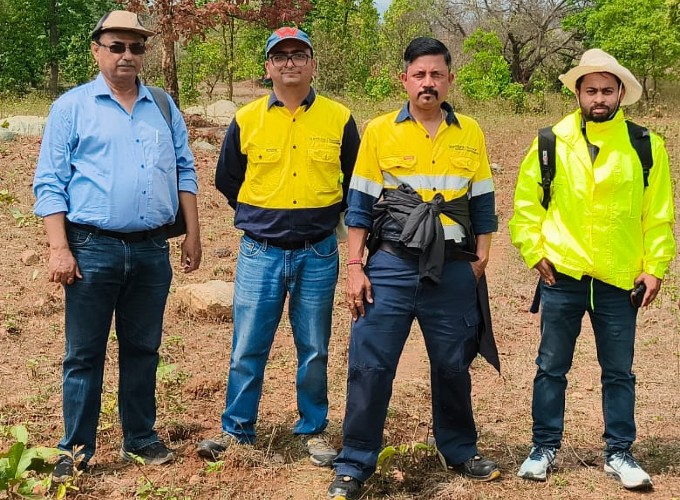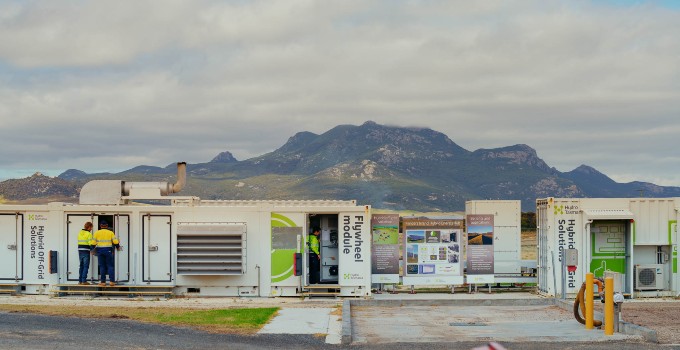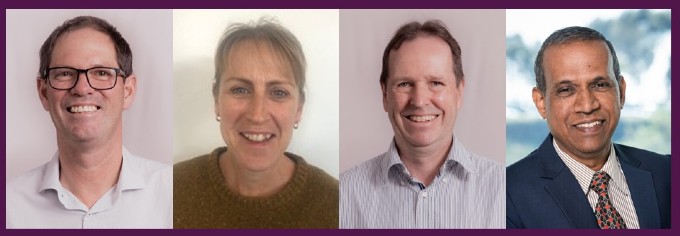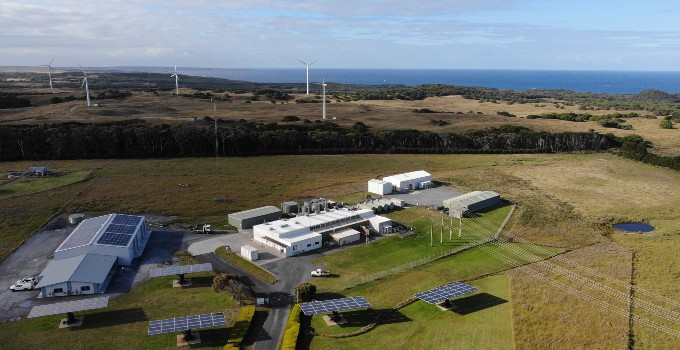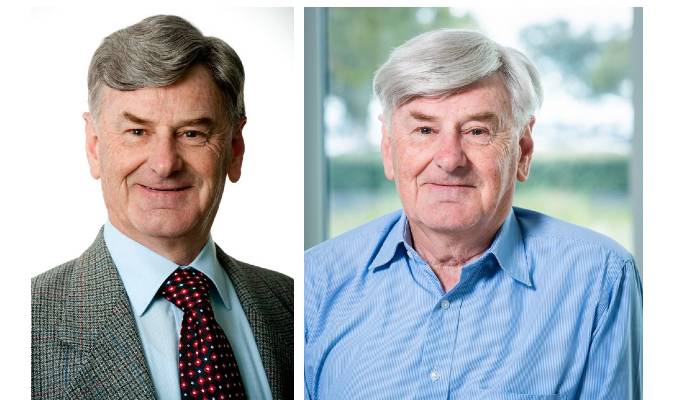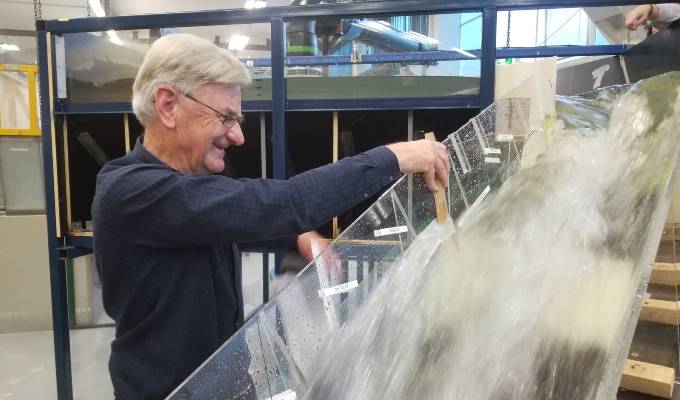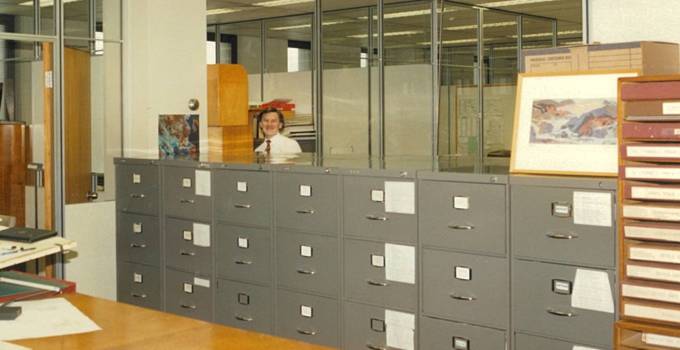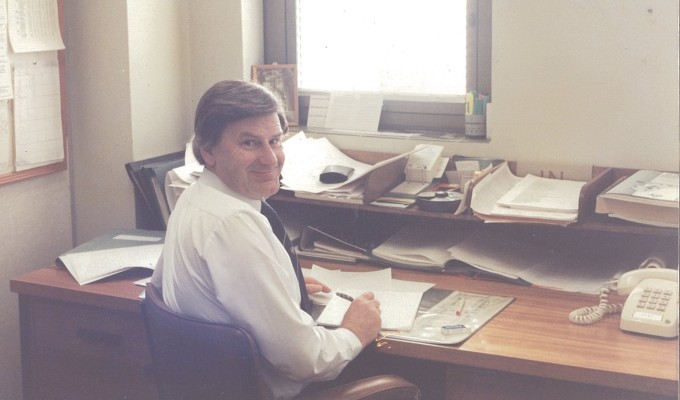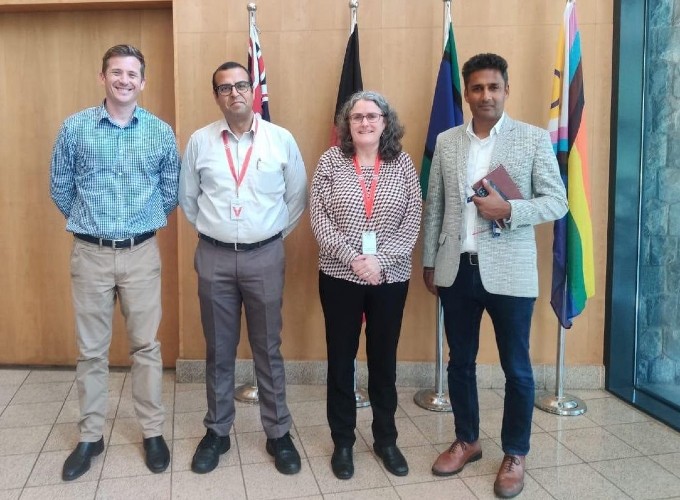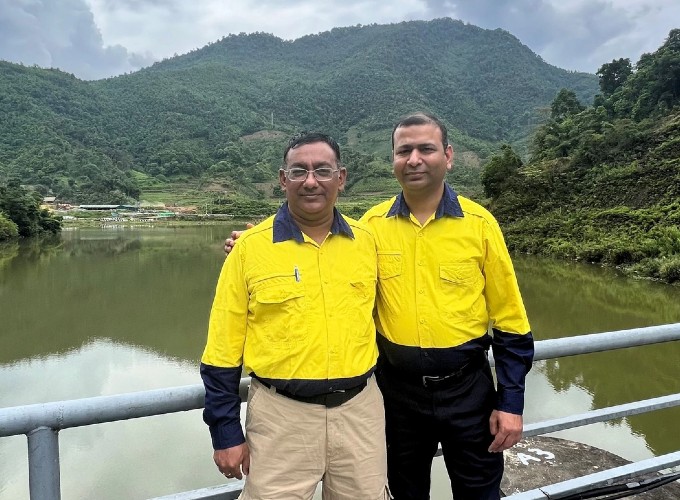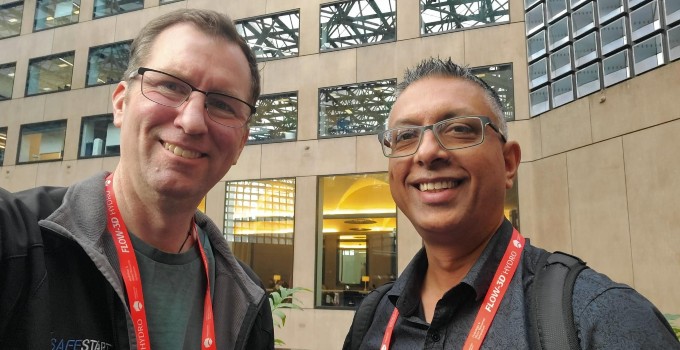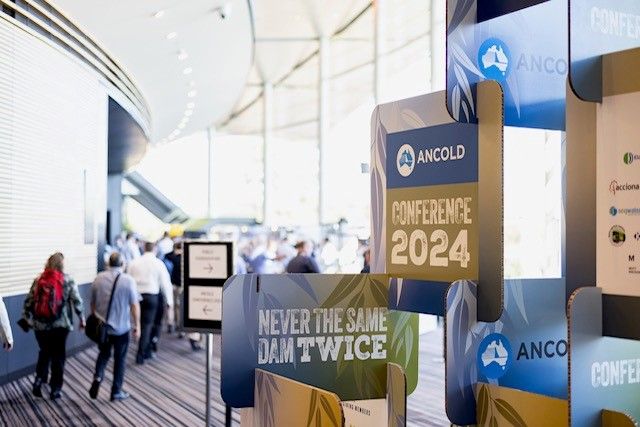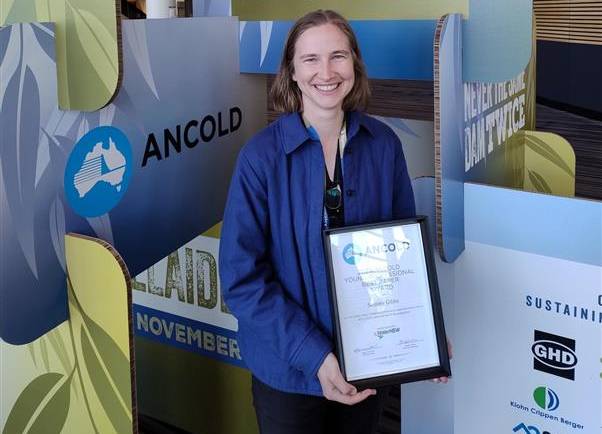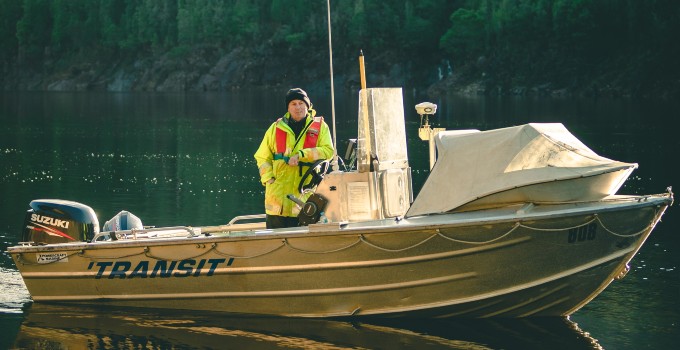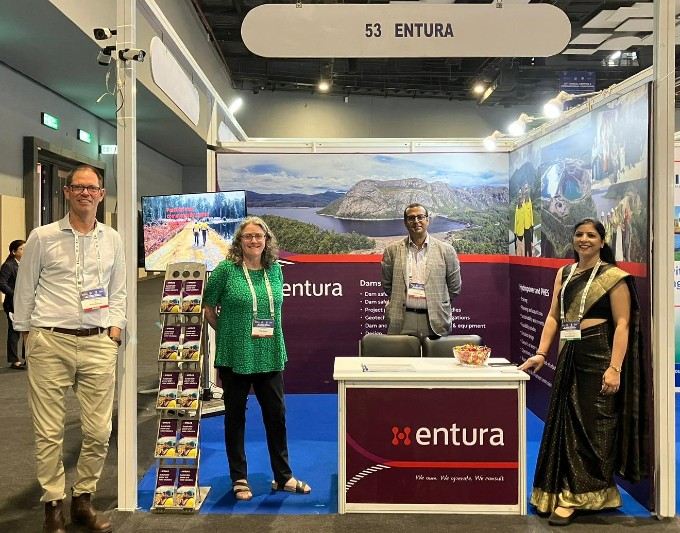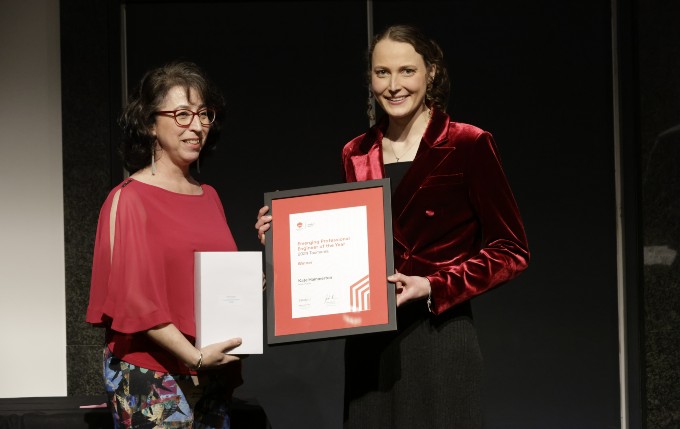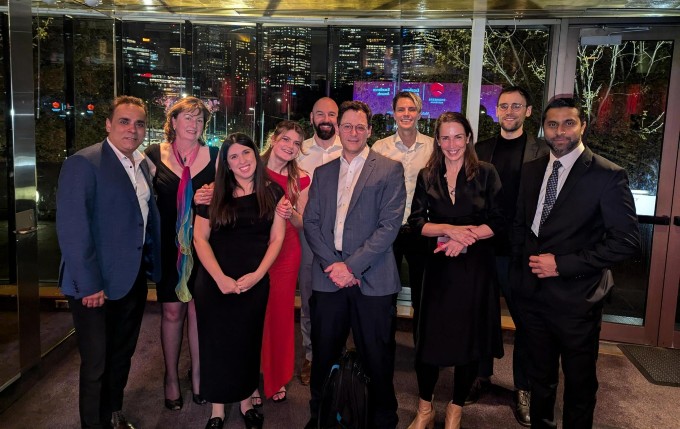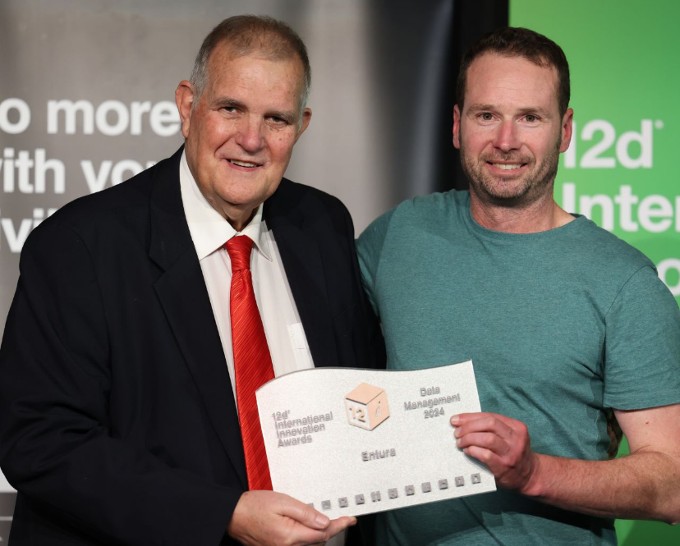Entura set to bring Australian pumped hydro experience to major new energy storage project in India
Entura has been appointed to prepare the detailed project report for a 1,500 MW pumped hydro energy storage project in Odisha, one of the eastern states of India.
The pumped hydro scheme is proposed by ReNew, one of the largest developers of utility-scale wind and solar energy in the world, with a combined portfolio of 17.4 GW. The project is one of the biggest of its kind currently proposed in the Indo-Pacific region, and is expected to make a major contribution to supporting India’s renewable energy transition.
Developing the detailed project report involves a wide range of crucial investigations into the project’s technical and economic feasibility, including the topography, geology, subsurface conditions, construction materials, and opportunities for optimisation. The report will enable ReNew to make informed decisions about the future of the proposed project, which may lead to submission to authorities for approval.
“This is an exciting and significant opportunity for us,” said Dr Amanda Ashworth, Managing Director of Entura. “We have been building our team in India and our networks with Indian developers, asset owners, utilities and governments since 2006, so we are delighted to be able to strengthen our involvement in India’s energy transition by supporting this important energy storage project,” she said.
Entura specialists on a site visit in Odisha (L to R: Baijayanta Bhattacharjee, Vibhor Gupta, Pradipta Swain, Dipankar Dey)
As the consulting arm of Hydro Tasmania, Entura brings more than a century of hydropower experience in Tasmania, mainland Australia and throughout the Indo-Pacific region. The power and water consulting business is now engaged in a number of pumped hydro projects across Australia, South Asia and Southeast Asia, including having developed the feasibility study and currently serving as Owner’s Engineer for Australia’s first new pumped hydro project in many decades: the 250 MW Kidston Pumped Storage Hydro Project (K2-Hydro) in far north Queensland. Entura has also been instrumental to the development of Hydro Tasmania’s own proposal for a 750 MW pumped storage project at Lake Cethana in Tasmania, including developing a pumped hydro screening process to identify high-potential sites.
“Entura was an early mover in pumped hydro screening in Australia, and continues to be a leader in the sector,” said Amanda. “Our experience in Australia became a springboard for our Indian specialists to adapt our screening methodology to the Indian context.”
Rajeev Raina, Entura’s Director – India, explains: “Through our screening process, we can identify the most promising regions for pumped storage hydropower development and optimise site selection. This approach can help minimise the environmental impact of pumped storage projects while maximising their potential for energy storage and balancing the power grid.”
“Screening for potential pumped hydro sites is a complex process and has rarely been applied at scale in India. However, in a recent engagement, Entura identified 68 sites with potential for combined energy storage capacity of approximately 730 GWh across three Indian states. At one of the sites Entura identified, a proposed 2,000 MW pumped hydro storage system is now working through the early stages of development,” he said.
The Government of India has identified pumped hydro energy storage as a priority and has committed to another 35 GW of pumped storage by 2032 to integrate new renewable generation capacity and manage challenges in load management and grid stability. However, of India’s estimated pumped hydro capacity of around 181 GW, only about 5 GW, or 2.6%, has been developed so far.
“Entura is eager to contribute our deep hydropower asset-owner experience, significant specialist skills and recent experience in pumped hydro to support India’s pathway to a more sustainable energy future,” said Amanda.
“Despite our very different scale, India and Australia have many of the same challenges in accelerating and firming variable renewable energy, and we have much to learn from and offer each other in our common purpose of the global clean energy transition,” she said.
Entura’s India office, established in 2006, includes 25 engineering and design consultants skilled in renewable energy solutions, including conventional hydropower, pumped hydro, wind, solar and battery energy storage. These specialists now work seamlessly with colleagues in Australia on projects throughout the Indo-Pacific region, including in India, Nepal, Maldives, Laos, Singapore, Philippines and Australia.
Entura has deepened its connection with India through successful exchange programs, training workshops and capacity-building initiatives delivered in India through the Entura clean energy and water institute (ECEWI). These have included dam safety training for India’s Central Water Commission as part of its Dam Rehabilitation and Improvement Project (DRIP), and the South Asia Regional Infrastructure Connectivity Framework – an initiative of the Australian Department of Foreign Affairs and Trade (DFAT).
“We believe that further cooperation and partnership between India and Australia will benefit both countries in our clean energy transformations, and we view the India-Australia Renewable Energy Partnership as a positive signal for ongoing mutual collaboration between the two nations on the challenges of the renewable energy transition and pursuit of net zero,” said Amanda.
Entura’s hybrid renewable energy innovations on Bass Strait islands continue to inspire
Entura’s hybrid renewables success was recently featured on Energy Matters on Channel 9LIFE, sponsored by Momentum Energy. See the feature here.
The footage, filmed on Flinders Island in Bass Strait, gives a rare inside view of the remote Flinders Island Hybrid Energy Hub on which the island’s 950 locals rely to power their homes and businesses.
The Flinders Island Hybrid Energy Hub was developed and commissioned in 2016 by Hydro Tasmania, after community input and support from the Australian Renewable Energy Agency (ARENA). Entura played a key role in bringing the new hybrid renewable microgrid into being.
The system combines solar panels, wind turbines, battery storage, flywheel technology and diesel turbines, with smart controls that maximise the amount of renewable energy and minimise reliance on diesel generation, while ensuring a reliable, consistent electricity supply. The power system consistently delivers around 60% renewable energy, with the potential to hit 100% when conditions are right.
Development of the Flinders Hybrid Energy Hub follows our ground-breaking success with the King Island Renewable Energy Integration Project, which has enabled King Island’s energy needs to be supplied solely from renewables when conditions allow, a world-leading breakthrough at the multi-megawatt scale.
The King Island and Flinders Island systems are among Australia’s earliest examples of remote high-penetration hybrid renewable energy systems. We’re now applying our Bass Strait experience, multidisciplinary expertise and ongoing innovation to isolated communities including Coober Pedy and Rottnest Island, as well as on a number of Pacific islands and at remote sites. These hybrid systems are providing clean, reliable energy and reducing reliance on diesel fuel – with its high carbon emissions, volatile prices and challenging logistics.
We also remain involved in the evolution of Hydro Tasmania’s renewable energy infrastructure, including on the Bass Strait islands, such as supporting the Huxley Hill wind and solar farms.
Find out more about our hybrid renewable energy expertise and integration solutions here:
- King Island Renewable Energy Integration Project
- Agnew Hybrid Renewable Project
- Coober Pedy Hybrid Renewables Project
- Rottnest Island Water and Renewable Energy Nexus Project
- Jabiru Power Station, Northern Territory
- Ross Island, Antarctica
- Tonga Renewable Energy Project
- Maldives (ARISE)
- Cook Islands Hybrid Renewables Power System
- Yap Hybrid Renewable Energy System (Federated States of Micronesia)
Long-serving Enturans celebrate major milestones
Having recently honoured the record-breaking 60-year service anniversary of Michael Wallis, Entura is also celebrating other impressive service milestones achieved in the first quarter of 2025.
We decided to dive a little deeper to find out how many of Entura’s current employees have hit or surpassed the 20-year mark. Astonishingly (and with some pride) we can report that more than 40 people in the business have worked at Entura for that long – contributing an extraordinary 1000+ years of experience!
Among those celebrating milestones are Technical Director (Water) Richard Herweynen and Commercial Services Officer Kel Parker who have recently reached 35 years with the business; Senior Principal (Dams and Headworks) Paul Southcott who is celebrating 25 years; and Senior Mechanical Engineer Karun DoddajatakaThammaiah, who has reached his 20-year anniversary.
When asked why they have stayed with Entura for such remarkable terms, these individuals answer with common themes: they have enjoyed the evolution and variety of their work, and they have built many warm relationships and happy memories over the years with colleagues they appreciate and admire.
Richard Herweynen says that over his 35 years with the business he has made life-long friends. “I have known many people for a long time and celebrated key personal milestones together, like weddings, the arrival of children, big birthdays, and many career highlights,” he says. “I really value the Entura family and there is no doubt that this is a major part of my life and identity.”
He is also grateful for the business’s support for career growth and continuous learning and development. “Entura and [parent company] Hydro Tasmania have invested in me through a number of leadership programs, which has not only developed my career but also had positive impacts on the rest of my life.”
Kel Parker reflects that in 1990, when she left high school and joined the business, the Hydro-Electric Commission (later named Hydro Tasmania) was the backbone of Tasmania’s workforce. “It was an honour to say you worked at HEC,” she says. “My father wanted me to be employed with the Hydro, and for me to stay as long as I could in this industry that offered many opportunities. I’m sure he would be very proud that I am still part of the company to this day.”
Kel has seen significant changes in organisational structure, technology, the roles and proportion of women in the business, and different locations and ways of working (particularly during and after COVID), but her pride in working for Entura has not wavered. “We should all be proud of what Entura has accomplished over the years: we are still here, still growing our strong reputation in the consulting market, and making a difference to sustainable power and water solutions across the world.”
Karun DoddajatakaThammaiah, who moved to Australia and joined the business in 2005, did not foresee still being with Entura two decades later. “I initially thought of staying for only two years at Entura and then moving to the mainland but that never happened! Entura provided challenging and diverse projects and a great work–life balance, so I never had time to think of moving! Honestly speaking, it’s the best employer, best team manager, and best colleagues and teammates I have ever had.”
For Paul Southcott, staying at Entura has been just as much about the people as the projects. “Over the 25 years I have had the privilege of working with some great people across the business and I have lots of memories of fun social activities, lunchtime walks and chats, and helping younger colleagues learn and grow. I have also been fortunate to work on some very interesting projects locally, nationally and internationally – from the Hydro Tasmania dam portfolio risk assessment through to design jobs including the Wellington Dam upgrade in West Australia and Suma Park Upgrade in Victoria, as well as projects in Nepal, India, Indonesia, Malaysia and across the Indo-Pacific region … and there are still so many great opportunities out there for us.”
Entura’s Managing Director, Dr Amanda Ashworth, herself anticipating a 25-year anniversary later in the year, congratulates all long-serving Enturans for their valuable contributions to their colleagues, to Entura and Hydro Tasmania, to the power and water sectors, and to communities near and far. “The fact that we work with people who have chosen to dedicate such significant amounts of their working lives to our business is an incredible testament to our supportive workplace culture, our professionalism, and the contribution our projects make to a more sustainable future,” she says.
Entura helps deliver a major life extension for King Island’s wind turbines
Entura is proud to have played an important role in giving Australia’s oldest continuously working wind farm a new lease on life.
The first wind turbines at the Huxley Hill wind farm on King Island were 3 Nordex N29 250 kW turbines built in 1998. Two Vestas V52 850 kW turbines were added in 2003. The hybrid power system for the isolated island also includes a lead-acid battery, 2 flywheels, and a dynamic resistor – and a solar farm was commissioned in 2024. These generating and storage components are integrated and managed via an advanced hybrid control system.
In 2021, Entura was engaged by Hydro Tasmania to conduct a feasibility study for redevelopment of the wind farm, as the three Nordex N29 250 kW wind turbines had nearly reached end of life and the two Vestas V52 850 kW wind turbines were expected to reach end of life in 2028.
Entura supported Hydro Tasmania by investigating the potential wind, solar PV and energy storage options to replace the current system, including the most appropriate replacement or refurbishment options for the old turbines. This included considering changing patterns of demand and undertaking techno-commercial modelling and a planning assessment.
Finding a solution for the turbines was challenging, given the complex task of getting such large components and cranes to the remote, wind-blasted island.
To extend the life of the plant, in 2022 Hydro Tasmania embarked on replacing the nacelle of one of the oldest wind turbines. Entura has managed the works on behalf of Hydro Tasmania including procuring the new nacelle, engaging contractors and coordinating activities including tower condition assessment and survey, and the installation contractor’s works.
As of March 2025, the three Nordex N29 250 kW wind turbines have been replaced with new nacelles and work is underway to refurbish the two Vestas V52 850 kW wind turbines. These upgrades to the wind turbines are expected to give the wind farm 15 or more years of life.
King Island’s renewable energy and storage journey
The wind turbines are a key part of the clean energy picture on King Island. Until the late 1990s, the remote island was powered solely by diesel generation. Now, the community’s electricity needs can be served entirely by renewable energy when conditions allow.
King Island’s hybrid renewable power system has evolved from the King Island Renewable Integration Project (KIREIP), which was an initiative of Hydro Tasmania with funding assistance provided by the Australian Renewable Energy Agency. It was the first megawatt-class off-grid system with this capability in the world.
Entura worked closely with Hydro Tasmania to deliver specialist consulting services for KIREIP, playing a key role in designing and implementing the system. As well as our work on the original KIREIP project and recent improvements at the Huxley Hill Wind Farm, Entura undertook the project management and tender process for the King Island Huxley Hill Solar Farm, including coordinating the interfaces between parties, monitoring the contractor’s performance and commissioning the solar farm.
A complex chapter ahead for older wind farms
Entura is pleased to be at the forefront of finding practical and sustainable solutions to the challenges of older wind farms.
“Given that wind farms usually have a design life of anywhere between 15 and 30 years, Australia’s earliest wind farms are now reaching retirement age, so we’ll be seeing many more wind farms beginning to grapple with the options to decommission, rejuvenate or repower,” said Dr Andrew Wright, Entura’s Senior Principal, Renewables and Energy Storage.
“We suggest that wind farm owners act now to deepen their understanding of the condition and present value of their assets, and explore the full range of short-term and long-term options available through a feasibility and options study. In such a dynamic market and technology landscape, and with the potential for aging assets to deteriorate or fail, it’s never too early to start assessing all the implications and possibilities.”
Read more about Entura’s work on King Island, including the KIREIP project, Huxley Hill Wind Farm and Huxley Hill Solar Farm.
Also read more of Andrew Wright’s thinking about the lives of wind farms in his thought leadership article ‘Breathing new life into Australia’s aging wind farms’.
The Huxley Hill wind turbine refurbishments were covered recently in this RenewEconomy article.
Celebrating an engineering legend: Michael Wallis reaches record 60 years of service
In an exceptionally rare milestone this month, one remarkable Tasmanian engineer is celebrating 60 years of service with a single business.
Michael (Mike) Wallis’s record-setting ongoing contribution to Hydro Tasmania, Hydro Tasmania Consulting and Entura (Hydro Tasmania’s consulting business) since February 1965 is literally a lifetime achievement.
During his long career, Mike has worked on water infrastructure projects throughout Tasmania, mainland Australia and overseas. He has amassed an amazing 6 decades of professional expertise in civil engineering and is an expert in hydraulics (how fluids behave in motion).
At Hydro Tasmania and Entura, Mike has seen 13 CEOs, navigated the rapid evolution of computing, witnessed generational changes in workplace culture, and worked every day to help keep Tasmania’s lights on and the state’s communities safe.
“Mike could write a book on Tasmania’s hydropower schemes,” says Dr Amanda Ashworth, Entura’s Managing Director. “No one can match Mike’s profound knowledge of our assets. He is truly irreplaceable.”
“Mike knows every rating curve for every dam in Hydro Tasmania’s portfolio. If you need to find a bit of information, Mike is the guru. If you have a complex problem, Mike will go away, find a paper, set up a spreadsheet, and get the answer for you,” says Paul Southcott, Entura’s Senior Principal, Dams and Headworks.
His colleagues say that Mike works like he plays golf: he’s consistent, steady, calm and precise – and exceptionally good at what he does. Throughout the years, Mike has maintained an impressive golf handicap, which for some time was an amazing 3 and is currently a remarkable A-grade 6.
Mike’s gentle presence, his unparalleled skills and knowledge, and his generous sharing of his expertise have been appreciated by many hundreds of colleagues over the decades.
“Mike’s a quiet achiever, an institution, and a walking library of hydraulics and corporate knowledge,” says Dr Colin Terry, Entura’s Senior Principal, Water. “It’s all about people for Mike. He’s a font of knowledge, a gatherer of information, and there for everybody. It’s very hard to imagine our team without him. He obviously loves what he’s doing and we love having him there.”
Relishing working with young people, Mike is an inspiring mentor for many emerging professionals and has generously given his time to support many students at the University of Tasmania with their postgraduate projects and PhDs.
“For graduates, the main thing is showing them the steps necessary to tackle and solve the problem they’ve been given and giving guidance on where to look for data,” he says. “For students, I’ve helped them define their project scope, and supported them with the design and set up of physical hydraulic models or computer models, testing and gathering results, and reviewing reports.”
Water Engineer Ben James says “When I was a student, Mike helped me with my honours project and I didn’t realise until later that the huge amount of time and effort he’d given me was all entirely voluntary. He is very knowledgeable, kind and enthusiastic and seems to gravitate naturally towards mentoring roles. We always ask Mike about anything we’re working on, because it’s likely he’s already worked on it at some stage. Anything Mike doesn’t know about civil engineering and Hydro Tasmania probably isn’t worth knowing – and he’s very keen to share his immense knowledge with anybody and everybody who wants support.”
As an exceptionally experienced senior engineer who has seen the business and profession evolve over 60 years, this is his advice to students and younger colleagues: “Study hard and you will achieve your goals. Don’t be afraid to ask questions if you don’t understand something. If you are trying to solve a problem and having trouble, then it is better to ask.”
Staying the course
Despite indicating some intent to retire decades ago, Mike continues to work part time with Entura.
“People ask me why I have stayed as I long as I have,” says Mike. “I like the work, I like the people. And if I didn’t, I wouldn’t still be here.”
When asked about why he chose hydraulics over other engineering disciplines, he says, “With electrical, you can’t see the current. Stresses in steel and concrete you can’t see. But with water, you can see it and how it acts. I like the work … so I sort of stuck with it.”
“Mike is the epitome of a long stayer and he’s not leaving yet,” says Amanda. “There’s no better example of work keeping you young if you love what you do and where you do it.
“When we celebrated Mike’s 50th work anniversary, it seemed such a milestone at the time, and I can’t believe it’s now another decade. It’s phenomenal that Mike is coming back every day and making that contribution to young people and the people around him. His commitment and loyalty is astounding.”
Acting CEO of Hydro Tasmania, Erin van Maanen, says “It’s amazing to think that Mike already has this incredible 60-year legacy, which is more than half of the history of this business. The time that he’s taken and the way he’s chosen to share that and mentor others means his legacy will live on for decades to come when he does choose to retire. If I could have even half the impact that Mike’s had on this business I’d be very happy with myself.”
When asked about his greatest achievement, the characteristically modest and understated Mike refuses to list one. Instead he says, “What I am proud of is that I played a small part in helping Hydro increase and maintain its generating capacity so that the lights are kept on and Tasmanians can have a better life.”
To find out more, enjoy this video celebrating Mike’s legacy.
Entura and Austrade combine forces to bolster India’s sustainable energy transition
For 2 decades, Entura has been helping power India’s net zero journey with Australian energy expertise and practical solutions to clean energy challenges.
For an Australian consultancy entering the Indian market, collaboration and networking has been vital to Entura’s success.
Entura established an office in Delhi in 2006, which has grown to include 25 consultants skilled in renewable energy solutions, including conventional hydropower, pumped hydro, wind, solar and battery energy storage, and grid integration. These specialists now work seamlessly with colleagues in Australia on projects throughout the Indo-Pacific region, including in India and Nepal.
Austrade advisors in India have provided Entura with tactical and targeted support along the way.
‘Austrade’s energy advisors have always been there for us,’ says Rajeev Raina, Entura’s Resident Director in India.
Through activities such as organising trade fairs and facilitating industry networking events, Austrade helps Entura build relationships with prospective clients throughout the region.
‘We have a stringent process for selecting clients,’ says Rajeev. ‘If Austrade refers a client to us, we have more confidence in the organisation’s credentials.’
Austrade recently assisted Entura to expand its capacity-building activities by introducing executives to the South Asia Regional Infrastructure Connectivity Framework. This opened new opportunities for Entura’s training arm, the Entura clean energy and water institute (ECEWI).
‘Globally there is real pressure on the skilled workforce in renewables,’ says Dr Amanda Ashworth, Managing Director, Entura.
‘Through ECEWI, we’re helping nurture the region’s future leaders with targeted training, capacity building and knowledge-sharing in renewable energy technologies, power markets, and sustainability,’ she says.
ECEWI has delivered close to 10,000 training hours for Indian clients and partners.
Connecting for impact
‘Many Australian and international businesses think that entering the Indian market is overwhelming, but collaboration and connections make the difference,” says Amanda.
Rajeev adds that the recent launch of the India-Australia Renewable Energy Partnership is a positive signal for ongoing mutual collaboration between the two nations on the challenges of the renewable energy transition and pursuit of net zero.
‘Participating in this partnership provides opportunities for companies like Entura to make a practical difference towards the goals of both countries,’ he says.
Rajeev is excited about the potential for developing new pumped hydro storage projects to support India’s clean energy transition. The Entura team in India is already making significant contributions to new pumped hydro projects in Australia, and has undertaken screening of potential projects in India.
He says, ‘There are plenty of opportunities for consultancies such as ours to bring our expertise to support the vast roll out of new renewable generation and energy storage solutions needed in India – and expertise in pumped hydro will be in high demand.’
Working collaboratively with colleagues located in India has been crucial for Entura’s business development in the region, says Amanda.
‘The India office is now part of our global team, and we work across time zones. In the last few years, we have become even more integrated and bonded, with virtual teaming and face-to-face visits.’
Entura is not just empowering India’s renewable energy journey, it is also helping create lasting social impact.
Amanda emphasises the broad and positive social impact of enabling clean energy throughout the region – and doing it in a responsible, sustainable way.
‘Entura may be a small company in global terms, but we are proud of the work we are doing with our partners and our clients, and really feel we are making a meaningful difference to people’s lives in India, bit by bit.’
Find out more in these articles from Austrade and The Australia Today.
Or view this short video clip.
Insights from EA Hydrology and Water Resources Symposium 2024
With over 370 hydrology and water experts from around the country and overseas descending on Melbourne for the Engineers Australia Hydrology and Water Resources Symposium 2024 last week, our own experts added to the diversity of thought and discussion.
Senior Principal Water Dr Colin Terry and Principal Hydrologist Dr Prafulla Pokhrel each gave presentations in their fields and participated in conversations ranging from risk management and climate change to the role of artificial intelligence.
“It’s a 3-day conference with the main purpose of bringing people together to share not just technical insights, but also the success of our industry colleagues”, said Colin. “We honour the traditions as well as looking forward to the new and emerging technology. There are topics that skirt the edges of our discipline which stimulate discussion and really fire the imagination, such as cybernetics and AI”, he said. Colin was so inspired by a presentation on data measured from the overtopping of a weir with parapet walls that he then spent the weekend doing CFD modelling to see if he could reproduce the phenomena discussed.
The conference was very well attended, testament to the power of making and deepening industry connections. “It’s important to me to be present at this conference as there is no substitute for the sheer number of papers and presentations you get exposed to”, said Prafulla. He was especially keen to learn more about how machine learning can be integrated into hydrology, and looking at responses to climate change and the impact this might have on flood risk. It was an idea that threaded through much of the event.
Colin and Prafulla agreed that the conference was a way to share not only what we do well, but also what we are working on and what we are learning. After Colin’s presentation, one attendee asked him whether she should be asking developers to do the sort of analysis that she had just seen him present. “My word you should”, he replied. As he and Prafulla noted, it is conferences like this one that give regulators, researchers, consultants, and clients a window onto what’s possible, which in turn drives the industry forward.
Enjoy this insight into the topic related to Prafulla’s presentation:
and these recent thought leadership pieces from Colin:
https://entura.com.au/changing-the-climate-future/
https://entura.com.au/what-is-the-best-way-to-model-complex-water-structures/
Entura Director reflects on diversity and inclusion at ANCOLD 2024
A group of Entura’s dams professionals attended the 2024 ANCOLD Conference in Adelaide in November. Richard Herweynen, Entura’s Technical Director Water, reflected on how the demographic mix of ANCOLD attendees has changed over his many years of attending the conference and what more the sector can do to foster the greatest array of talent.
“I have always enjoyed seeing ANCOLD continue to evolve, and the last few years have been no exception,” said Richard. “I can certainly say that the demographic at my first ANCOLD conference in Sydney in 1998 was very different from the more diverse cohort in Adelaide in 2024!”
Richard was involved in the development of the original strategic plan and launch of ANCOLD’s ‘Young Professionals’ in 2010-11, and he was “amazed to see how dynamic and healthy this group is now”.
“I was excited to hear about the rebranding of this group to ‘Emerging Professionals’ and to hear about the group’s planned initiatives to support up-and-coming engineers, such as Entura’s talented emerging professionals including Kate Hammerton and Sammy Gibbs,” he said.
Another ANCOLD initiative launched at the 2024 conference was the inaugural Women in Large Dams (WILD) breakfast.
“It was inspiring to hear from the panel of women leaders and to hear their advice to individuals, organisations and the profession as a whole,” said Richard.
“I noted how at the individual level there was a lot of encouragement to women to be bold, say yes to new opportunities, embrace their difference, seek out mentors, and mentor others. But it was also important for all of us gathered at ANCOLD to reflect on how much our how our organisations must continue the effort to create safe and inclusive spaces for women to thrive in their careers, make it easier to shape a manageable work/life balance and juggle caring responsibilities, and achieve greater representation of women in leadership and senior technical roles – things we’re working hard to achieve at Entura.”
Richard was also impressed by a panel discussion at the conference that featured three recent migrants to Australia who are now working in the dam industry.
“This was another important conversation for ANCOLD to start and for each of our organisations and us as individuals to continue,” said Richard. “The session made me particularly aware of the sense of professional isolation that many new migrants experience.”
Reflecting on the session, Richard noted the following actions for those keen to support greater cultural diversity and inclusion in their workplaces:
- Make an effort to talk to a range of people at these sorts of events.
- Encourage networking, buddy systems and catch-ups to break down barriers.
- Be mindful, aware and patient.
- Try to help new migrants understand Australian standards.
- Encourage international engineers to share their experiences and international projects with the wider team and industry.
- Continue to create safe and supportive environments for people from diverse backgrounds.
Richard was pleased to see ANCOLD embrace a vision of greater diversity and inclusion in the dams sector.
“With the great engineering and scientific challenges facing the world, our profession needs to make every effort to attract, develop and retain talented people from every walk of life,” he said, “and diversity and inclusion doesn’t happen by accident.”
Entura farewells international delegation and concludes renewable energy training
After a hectic two weeks in Melbourne, the Entura clean energy and water institute (ECEWI) bade farewell to 18 executives from Bhutan, Bangladesh, India, the Maldives, Nepal, Pakistan and Sri Lanka. The Australian Department of Foreign Affairs and Trade (DFAT) supported training was provided as part of the South Asia Regional Infrastructure Connectivity (SARIC) initiative implemented by the World Bank, IFC and Palladium.
Networking and establishing mutually beneficial cross-country relationships are a key component of the SARIC initiative. This is a much-anticipated highlight for the delegates, and we certainly didn’t disappoint. ECEWI held an introductory networking event which included a ‘speed networking’ ice-breaker and an introduction from a representative from each of the seven countries.
ECEWI’s program covered key renewable energy topics including wind, solar, batteries, grid connection, hybrid systems, policy, and finance and commercial. There were six classroom days, including a day with Australian Energy Market Operator (AEMO), and four site visits to operating assets including King Island.
The sessions were delivered by Entura’s most experienced renewable energy specialists, as well as guests from AEMO, Hydro Tasmania, Momentum Energy, Pentagreen Capital, Marsden Jacob Associates and a SARIC alumnus.
“While classroom work is important, there is nothing better to reinforce learnings than to be in the field, seeing and talking with the people that are making renewable energy a growing part of Australia’s energy solution,” said ECEWI’s Program Coordinator, Leesa deGroot.
“Everyone who was involved with this event went above and beyond our expectations, generously giving their time, expertise and insights. We couldn’t have delivered such a successful course without their help,” she said.
Amanda Ashworth, Entura’s Managing Director, added, “I have been amazed at the power of the connections made in these programs and have no doubt that there will be more great stories arising from the wonderful group of committed participants. It’s SARIC’s plan to encourage connectivity between the countries physically and through relationships. The power of the combination of capability training and interpersonal interactions came to the forefront recently when our alumni from 3 countries were involved in a landmark cross-national power agreement between Bangladesh and Nepal using Indian transmission infrastructure.
Renewable energy is such a dynamic market – and this timely training exposes participants to learn and grow to shape not just their own futures, but also the future of their country and the region.”
Young Entura engineer Sammy Gibbs wins award at national dams conference
Entura congratulates civil engineer Sammy Gibbs, who has won the Young Professional Best Paper award at ANCOLD 2024.
Sammy presented her paper, ‘Integrating emergency response actions into an RMC-LifeSim potential loss of life assessment’, in Adelaide during the ANCOLD conference, which ran from 11 to 14 November with the theme ‘Never the Same Dam Twice’.
Sammy explained that for practitioners and stakeholders it is important to have confidence in the estimate of the number of fatalities that could result from dam failure. This is carried out in a ‘potential loss of life’ (PLL) assessment, which may be undertaken using simulation models, such as RMC-LifeSim. The resultant PLL estimate is then used in assessments that inform significant financial decisions for dam owners, such as dam design, surveillance programs, major upgrades or decommissioning.
Sammy’s paper used a case study to demonstrate how emergency response information, obtained by collaborating with the dam owner, local council, local regulator, police and state emergency service, informed the RMC-LifeSim model inputs so that the model represented the local emergency response plan and likely PLL.
“The overall objective of the paper is to encourage practitioners to collaborate with local stakeholders and emergency response authorities when undertaking detailed PLL assessments as each community and emergency response is unique. Representative and realistic evacuation simulation models require the incorporation of local knowledge,” she said.
Sammy said that it was a pleasure to share the topic with such an engaged audience and to receive so many positive responses. “It’s been great to see so much interest in emergency response and how it informs engineering assessments,” she said.
Dr Amanda Ashworth, Entura’s Managing Director, said she was very proud to see Sammy recognised at the prestigious annual industry event for dam engineering and safety.
“Sammy is a greatly valued member of Entura’s dams team, and her work in flood studies, impact assessments, dam design and dam surveillance is making significant contributions to the safety and resilience of many communities in Tasmania,” she said. “Sharing her knowledge in a national forum is a powerful way to build a stronger industry and safer communities across Australia and beyond.”
The paper was co-authored by Entura’s Senior Principal (Dams and Headworks) Paul Southcott and Specialist Civil Engineer Craig Ludlow.
Entura welcomes international delegation for renewable energy training
Entura is proud to continue our support for the South Asia Regional Infrastructure Connectivity (SARIC) initiative from DFAT by delivering a renewable energy training to participants from the South Asia region.
SARIC is a $32 million initiative funded by the Australian Government since 2020 and is implemented by the World Bank, IFC and Palladium.
Over the next 2 weeks, the Entura clean energy and water institute (ECEWI) will be providing training to 20 executives from Bhutan, Bangladesh, India, the Maldives, Nepal, Pakistan and Sri Lanka.
The participants will gain knowledge of global practices being followed in Australia for renewables development and operation, learning about solar, wind, battery energy storage systems, renewable energy policies, clean energy financing, the National Electricity Market (NEM) and environmental, social and governance (ESG) principles. They will also experience first-hand various renewable energy assets to contextualise their learnings, including Yaloak South Wind Farm, Girgarre Solar Farm and Tasmania’s King Island Renewable Energy Integration Project.
Entura’s senior renewable energy specialists will be delivering the sessions, including Silke Schwartz, Director, Water and Renewables, Dr Andrew Wright, Senior Principal, Renewables and Energy, Donald Vaughan, Technical Director, Power, Dr Christopher Blanksby, Principal Engineer, Wind, and Dr Cynthia Nixon, Principal Environmental Consultant. Additionally, participants will have the opportunity to engage with guests from across the energy sector.
“Our people are experts in renewable energy and the opportunity to deliver this training is a testament to their skills and knowledge,” said Entura’s Managing Director, Dr Amanda Ashworth. “Capacity-building is as important as ever for a successful and sustainable clean energy transition, and we are passionate about facilitating this.”
Following this, a power markets training was delivered, covering key power market topics and creating important opportunities for networking and relationship building between Australian energy sector players and South Asian counterparts.
Entura has delivered training through ECEWI for over ten years. During that time, it has delivered more than 146 training programs to power and water clients in Australia and internationally. This includes dam safety training for the Malaysian Committee on Large Dams (MYCOLD), dam safety training for local Tasmanian utilities, and close relationships with Bangkok’s Asian Institute of Technology (AIT) and Kuala Lumpur’s Universiti Tenaga Nasional (UNITEN), among others.
Find out more about our customised training offerings here.
Entura celebrates Senior Surveyor Jeremy Ford’s 40 years of service
Entura is celebrating Senior Surveyor Jeremy Ford’s 40 years of service.
Jeremy joined the business in 1984, when it was known as the Hydro-Electric Commission. It later became Hydro Tasmania. Jeremy’s role in the surveying and spatial team was with the business’s dedicated consulting arm, Hydro Tasmania Consulting. This subsidiary later became Entura.
During Jeremy’s long career, he has been involved in several key Hydro Tasmania developments, such as the Anthony-Henty and King hydropower schemes, located on the Tasmania’s West Coast. He was also involved in the project to connect Tasmania to the National Electricity Market via the Basslink undersea interconnector between Tasmania and Victoria.
In his role he has contributed to other projects across Australia – in New South Wales, Victoria, South Australia, Queensland and the Northern Territory – as well as further afield, including in Papua New Guinea and Samoa.
“I’ve been to some really spectacular sites and some very special places,” says Jeremy. “I ended up in surveying because it’s something that involves so much outdoor work, and I always liked being outdoors – even when I was growing up.”
“I’ve seen a lot of places and a lot of Tasmania over my time, but you never get sick of it and the places you go to are all lovely.”
After 40 years in the industry, Jeremy’s advice for aspiring surveyors is to “say yes to a lot of opportunities”. “If you like to be outdoors and want to see a lot, then it’s for you.”
“Jeremy’s 40 years of service illustrates his commitment, dedication and loyalty over a long, fruitful career,” said Entura’s Managing Director, Dr Amanda Ashworth. “Over that time, he has made an enduring contribution to the power and water industry in Australia.”
Entura’s specialists share industry insights as 2024 ICOLD Conference gets underway in New Delhi
Entura specialists are sharing their insights into dam safety and pumped hydro energy storage at the International Commission on Large Dams (ICOLD) 2024 Annual Meeting and International Symposium, held this week in New Delhi.
Join us at the Entura booth, Stall 53 (pictured below), to meet and discuss dam safety, pumped hydro storage and training.
Amanda Ashworth (Managing Director) and Richard Herweynen (Technical Director, Water) Praveen Kumar (Specialist Consultant) and Rajeev Raina (India Director and team leader) look forward to engaging with technical peers, existing and potential clients, and a range of stakeholders in the water and power sector.
Amanda, Richard and Praveen will present papers on 1 and 2 October.
Amanda’s presentation (1 October), ‘Building dam safety capability for the future: an essential part of your dam safety program’, focuses on the need for those who design, operate, inspect and maintain dams to have the right skills and competencies to comply with evolving standards, apply new technologies, and respond to changing operational circumstances and demands.
“Water and power utilities and asset owners are recognising that investing in the capability of their people assets is equally important as investing in their physical assets, and that well-trained people are key to dam safety,” says Amanda.
“I am proud to present our insights based on Entura’s experience of partnering with a range of stakeholders across the Indo-Pacific region to deliver contemporary, tailored, workplace-based training informed by global best practice via the Entura clean energy and water institute – helping organisations to better manage risk and achieve their long-term business goals and strategy.”
Richard will present 2 papers on 2 October: ‘Hydro Tasmania’s risk-based, systems approach to dam safety management’, and ‘The importance of pumped hydro in Australia’s energy transition’.
“It’s exciting to see the increasing interest in pumped hydro’s ability to support the energy transition by providing the crucial deep storage and firming solutions needed as grids incorporate more variable renewable energy sources, like wind and solar PV,” says Richard.
“I’ll be sharing some insights into Entura’s experience of working on Genex Power’s Kidston Pumped Storage Hydro Project in Queensland and the process of selecting and designing a new pumped hydro opportunity in Tasmania.”
Praveen also presents on 2 October on ‘Creating pumped hydro energy storage atlases to understand opportunities: Examples from Australia and India’. The presentation will explore Entura’s approach to identifying and screening potential pumped hydro opportunities, which has been applied successfully in India as well as in Australia.
This week’s ICOLD gathering is the organisation’s 92nd annual meeting, attracting more than 1500 participants, with more than 300 presentations and 8 workshops across 5 days on the theme of ‘Dams for People, Water, Environment and Development’.
Entura expertise recognised at 2024 Engineers Australia Excellence Awards
Two of Entura’s engineers were recognised for their expertise, achievements and contributions to the profession at the 2024 Engineers Australia Excellence Awards last week.
Kate Hammerton, Renewables Engineer, took home the award for Emerging Professional Engineer of the Year (Tasmanian chapter), at an event held in Hobart on Friday. Kate was commended for her technical expertise, contributions to the engineering community, and her demonstrated aptitude on renewable energy projects in Australia and internationally.
Kate will represent Tasmania at the national awards, which will take place in Brisbane in November.
“It is lovely to have been put forward by my colleagues and the business as a whole for this award,” said Kate.
“To be chosen among the talented finalists in the Tasmania branch was an honour. I am looking forward to the national awards and meeting the many other talented and accomplished engineers there.”
Senior Power Systems Engineer Kali Liaka was a finalist in the Emerging Professional Engineer of the Year category (Victorian chapter), recognising her professional achievements and engineering contributions over the past few years.
“My nomination for the Engineers Australia Excellence Awards is another example of the great support I receive in Entura and I am very grateful for this,” said Kali.
“It was definitely a great moment of my career to be chosen as a finalist for an engineering award and my nomination has given me an opportunity to reflect on my achievements and define my focus for the following years.”
“To have a winner and a finalist in this year’s Engineering Excellence Awards is a testament to the talent of Entura’s people, particularly our emerging professional engineers,” said Entura’s Managing Director, Dr Amanda Ashworth.
“At Entura, we see Kate’s and Kali’s hard work first hand so it’s great to see them recognised by the engineering community. They both go above and beyond to deliver excellent results for clients and are always strong supports for their teams,” said Amanda.
“We are so proud of their technical expertise, leadership skills, and the innovative approaches they take to solving client problems, and we look forward to supporting them to continue to grow and thrive in their careers.”
Both Kate and Kali have been involved in key renewable energy projects in Australia and internationally. Kate was the Assistant Project Manager for Owner’s Engineer work for Tasmania’s Cattle Hill and Granville Harbour wind farm projects, which helped Tasmania achieve 100% renewable energy. She has also contributed to increasing renewable energy in the Pacific, supporting the Tonga Renewable Energy Project, which aims to bring the country’s renewable energy to 70% by 2030.
In Australia, Kali was involved in the landmark Agnew Hybrid Renewable Microgrid project, powering a Western Australian goldmine with a solar, wind, battery and gas microgrid to reduce its carbon emissions.
In previous years, several individuals and projects have received Engineers Australia Excellence Awards. Richard Herweynen (Technical Director, Water), Donald Vaughan (Technical Director, Power), Seth Langford (Principal Engineer, Renewable Energy), David Gerke (Principal Engineer, Civil) and Paul Southcott (Senior Principal, Dams & Headworks) have all achieved the Professional Engineer of the Year (TAS) award, and Entura won the Tasmanian project category in 2016 for our work on Meander Dam.
Entura specialist recognised for data management expertise at 12d Tech Forum
Entura’s Andrew Shaw, Senior Technical Officer Civil, has been recognised for his data management expertise at the recent 12d Tech Forum held in Brisbane.
Andrew received the data management award for his contributions to Hydro Tasmania’s Battery of the Nation program of works. For the Tarraleah Redevelopment component of Battery of the Nation, he has implemented 12d Model for design and 12d Synergy for data management.
The Entura team’s use of 12d Synergy creates a ‘common data environment’ for optimised workflow, data management and version controls. The team adopted best-practice international standard ISO 19650 naming conventions and executed data management principles across pumped hydro energy storage (PHES) hydropower design elements, allowing all involved in the extensive, multidimensional and multi-disciplinary project to seamlessly store, manage, access and roll-back any version of files throughout the project.
“The use of 12d Synergy and ISO 19650 naming conventions is becoming the standard across sectors such as transport, roads and drainage, where companies have thousands of people all working in the same project files and an obvious need for cohesion and integration,” Andrew explained.
“However, it’s relatively new in Australia’s hydropower and renewable energy sector. Implementing this data management tool for Battery of the Nation demonstrates that a boutique consulting firm like Entura can keep up with other tier-one consulting firms and lead the way in our industry.”
“On a business improvement level, adopting the software and our file-naming conventions made for efficient, streamlined workflows across the various teams working on the project in our different office locations across Australia and in India, with everyone working in a centralised library,” he said.
“This award is a testament to Andrew’s proactive thinking and role as a changemaker in the 12d Synergy space at Entura. Andrew’s excellent work demonstrates Entura’s commitment to using advanced data management techniques and software in an ever-evolving digital landscape, so that we can futureproof our processes and better serve our clients,” said Managing Director, Dr Amanda Ashworth.
“It’s particularly important to Entura, as the consulting arm of Hydro Tasmania, to have been able to make such a valuable contribution so close to home by supporting one of Tasmania’s key energy projects that forms part of the Battery of the Nation vision,” she said.
During the Tech Forum, Andrew delivered a presentation on Entura’s award-winning work, demonstrating how 12d Synergy software technology was a core element in the design process as well as the data management for the Battery of the Nation project.
Applying 12d Synergy and striving for ISO 19650 standards involved several steps, including engaging with stakeholders to determine the asset classes for hydropower, categorising these in line with ISO 19650 conventions, implementing these categories into the common data environment, and training team members across several Entura offices to use the new conventions and processes.
“I really valued the opportunity to attend the tech forum and present the work we do at Entura and the innovative ways we’re harnessing 12d software,” said Andrew.
“Being able to hear from others across a range of sectors and disciplines – surveying, hydrographic and flood modelling, roads and transport – was also insightful. We even heard from one 12d software programmer, Tadgh Gunter, who’s only 18, and is already so knowledgeable – I think it made a few of us in the room feel pretty old!”
Entura has been supporting Hydro Tasmania’s Battery of the Nation initiative since its inception. Upgrade works to the Tarraleah hydropower scheme are currently underway, with construction occurring at Lake King William and the upgrade of Mossy Marsh Dam now complete.
Entura welcomes new Senior Principal, Hydropower, Flavio Campos to the team
Entura is pleased to announce the appointment of internationally renowned civil and hydropower engineer, Flavio Campos, as Senior Principal, Hydropower.
Flavio is already supervising construction on the Genex Kidston PHES project in Queensland and has joined the Entura team on the Tarraleah upgrade as part of Hydro Tasmania’s Battery of the Nation program.
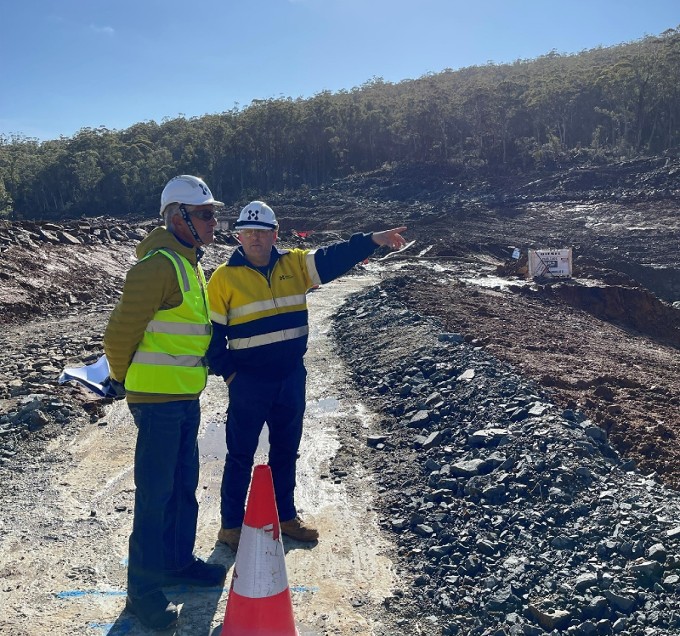
Flavio Campos (left) at the Tarraleah Upgrade project site with Anthony Hills, Hydro Tasmania’s Senior Site Manager
Originally from Brazil and graduating from the prestigious Instituto Tecnológico de Aeronáutica (ITA), Flavio has worked around the world on significant and important hydropower projects ranging in size and form, from 4,125MW projects to a small plant of 30MW.
He has worked in Tanzania, Laos, Panama, Canada, Chile, and China, and also holds a Chartered Professional Engineer accreditation from Engineers Australia.
Speaking about his most recent project in Sri Lanka, Flavio said: “Even if they’re smaller projects, they often have the same complexity. There can be interesting challenges if resourcing is stretched or hard to come by.”
If there is anyone who loves a challenge, it’s Flavio. He points out that one of his strengths is to see the bigger picture first. He takes time to understand the challenges, see risks and opportunities and works with project teams to find the best solutions.
It’s Flavio’s desire to learn about new aspects of the hydropower industry that drew him to Entura. He came across Entura’s pumped hydro atlas at a conference in the US, and after taking a short trip to Australia to learn more, he felt the pumped hydro energy storage (PHES) project opportunities here were too good to miss.
“These projects are very demanding and I want to use all my skills to ensure their success. I like to be on the cutting edge and am always looking to challenge myself. I have this accumulated knowledge and want to use it,” he said.
Along with his years of practical knowledge comes the desire to pass it to the next generation of engineers. “I love to coach younger professionals and pass my knowledge to them,” he said.
It must run in the family: his father is a mechanical engineer, and his second daughter is a civil engineer. “I didn’t push her,” he said, “she told me at the last minute that she wanted to pursue this career. It’s nice.”
Entura’s Senior Principal, Hydropower, is a technical leadership position in hydropower and across the broader business. It is influential with a range of project stakeholders and supports the growth and development of others, while contributing to shaping the strategic direction of Entura.
Australian Clean Energy Summit raises important themes for the energy transition
Entura’s Managing Director Amanda Ashworth and Business Development Manager Patrick Pease attended the Australian Clean Energy Summit held in Sydney this week.
“It was heartening and inspiring to be among the more than 1600 delegates gathering to discuss solutions to expedite Australia’s clean energy transition,” said Amanda.
“I am always proud to reflect on the many ways in which Entura contributes to this crucial and urgent purpose – including supporting our clients with planning, environmental and social impact assessments, design, grid connection support, transmission and distribution solutions, due diligence, asset management, training and more.”
At the summit, CEO of Hydro Tasmania (Entura’s parent company) Ian Brooksbank was part of a panel discussing the critical importance of long-duration storage.
“Entura is lending significant expertise to progress Hydro Tasmania’s plans for more long-duration storage through a new pumped hydro scheme and a redevelopment of an aging hydropower scheme to operate more flexibly to match the needs of the National Electricity Market,” said Amanda.
“We are also supporting clients across Australia and the Indo-Pacific region with energy storage solutions including batteries and pumped hydro to unlock more wind and solar and increase the security and resilience of power systems.”
Getting projects out of the ground
Patrick noted a strong focus from developers on the many challenges and hurdles delaying the delivery of new generation and storage projects in Australia.
“We heard loud and clear that project proponents continue to be frustrated with the time and complexities involved in getting their projects through planning and approvals and achieving grid connection agreements,” he said.
“In Australia, we are looking at close to a decade in some instances to get a project off the ground, so there’s simply no leeway for getting things wrong along the way. Project proponents should be seeking support from practitioners with a lot of real-world experience, deep understanding of the issues, and highly developed judgement to streamline complex processes as much as possible and avoid any rework.
“In this fast-moving sector, the judgement that grows from experience will be key to navigating uncertainties and maximising the chance of success.”
A fast but fair and positive transition
Amanda reflected that the urgency of the transition and the need to streamline approvals and accelerate delivery must not come at the expense of communities, the environment or integrity.
“Renewable energy projects will inevitably have some impacts, so how can we ensure that we minimise those impacts and find the right balance when compromises seem necessary?” she said.
“At this year’s summit, I observed greater maturity and nuance in discussions around social and environmental responsibility in the sector, with an increasing focus on moving beyond environmental offsets and towards achieving net positives and lasting benefits for nature and for communities,” she said.
“It’s important that the industry guards against simplistic equations in which local impacts of a renewables project are obscured or undervalued due to the project’s overarching benefits for climate change mitigation.
“We all need to recognise that every project is unique, that there are sometimes shades of grey, and that we should pause to ask the right questions and think very carefully about priorities.”
Pushing the limits
Amanda emphasised that a fast transition is essential but will “push the limits” of process, labour, expertise and materials.
“Our industry and policy makers should be looking to pull every possible lever,” says Amanda, “such as regional approaches, global collaboration, innovation and digitisation, and, of course, major investments in the talent pipeline.
“Investing in technical capabilities and leadership capacity will be crucial for our sector to meet the challenges ahead, which is why Entura is putting great effort into attracting and retaining talent, supporting our people to grow, and sharing our knowledge with our regional neighbours through the Entura clean energy and water institute.”
Read more Entura insights into sustainable renewable energy and water projects in our series of thought leadership articles – and listen to our ‘Behind the Scenes’ podcasts to hear from our people.
Entura wins accolades at 2024 National Awards for Planning Excellence
Entura’s Environment & Planning Team has won the Stakeholder Engagement category at this year’s National Awards for Planning Excellence.
The team received the accolade alongside project lead Niche Studio and client Clarence City Council for their collaboration on a local area plan for Seven Mile Beach in southern Tasmania.
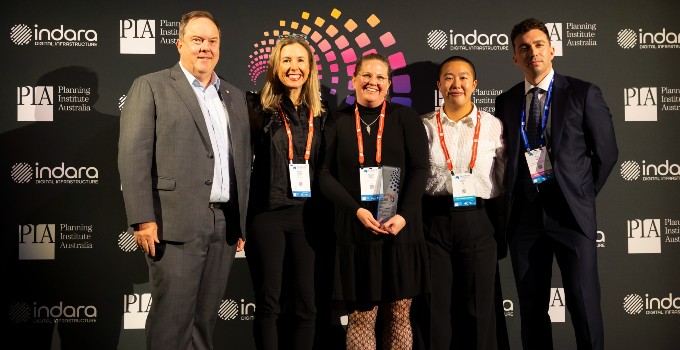
L-R: Darren Crombie, National President of the Planning Institute of Australia; Nicola Smith, Founding Director of Niche Planning Studio; Robyn Olsen, Lead Strategic Planner at Clarence City Council; Bunfu Yu, Senior Environmental Planner at Entura; and Tyler Agius, Director, State Facilitated Development, at the Department of Housing, Local Government, Planning and Public Works. Credit: Planning Institute of Australia, 2024
The group were commended by the judges for their proactive, tactical approach to overcoming an age-old planning challenge of engaging with community members who are often unable or unwilling to engage.
“The award is close to our team’s heart, as many of us live locally and enjoy recreational activities in and around the Seven Mile Beach community,” said Entura’s Senior Environmental Planner, Bunfu Yu.
“The partnership brought together Entura’s knowledge of the community and the physical environment with Niche Studio’s strategic planning and urban design expertise.”
The team’s unique approach to community engagement included conducting intercept surveys, which they had explored at a previous Planning Institute of Australia conference and were able to apply for the Seven Mile Beach Local Area Plan.
“Engaging with the communities you are planning for is a crucial part of creating liveable and sustainable futures,” said Bunfu.
“Engagement methods aren’t one size fits all. In this instance, intercept surveys allowed us to proactively engage with a broad section of the local community at places most intersected – the beach, coffee shop, local grocer, fuel station.”
The awards ceremony took place in Melbourne in late May, as part of the Planning Institute of Australia’s 2024 Planning Congress.
During the three-day event, Grace Elliott, Graduate Planner at Entura, was also selected to showcase her university thesis poster, ‘Exploring the Drivers, Barriers and Enablers of School-based Urban Greening in the Face of Climate Change’.
“Since her graduation, Grace has been working with the environmental approvals and social team on Hydro Tasmania’s Battery of the Nation initiative, as well as working within the social safeguards team making meaningful contributions to projects in the Federated States of Micronesia,” said Bunfu.
“Planning is so diverse, and at Entura our planners have varying interests, but together they are making spaces and places better for communities locally, nationally and internationally.”
The award follows several years of successes at the Planning Institute of Australia Awards, with Entura’s Senior Environmental Planner, Bunfu Yu, recognised as 2023 Young Planner of the Year at the state and national levels. Bunfu also won the Outstanding Student Project award in the 2020 National Awards for Planning Excellence.
Entura celebrates biodiversity discoveries at Lagoon of Islands following restoration efforts
Entura is celebrating the return of a number of species of native fauna and flora to Tasmania’s Lagoon of Islands after more than 40 years.
Lagoon of Islands was dammed in 1964. The dam wall was removed in 2012 and rehabilitation efforts in the area began. Entura has been involved in its restoration since then, working alongside Hydro Tasmania to provide water quality and vegetation monitoring at the site.
Kevin Macfarlane, Entura’s Water Quality Consultant, who has been involved in the project from the start, said “After the dam wall came down and nature was left to run its course, the area began to rebound. It wasn’t long until I was finding zooplankton in the water I was sampling, which had returned rapidly and in abundance. I also found two large copepod species, which had only ever been found in two places before – a roadside puddle somewhere along South Arm, and a lagoon on Bruny Island.”
“The fact that these species sprang back with minimal intervention is a testament to how resilient these wetlands are, and the diversity of life they’re home to,” said Kevin.
The Australasian bittern, dubbed the ‘bunyip bird’ for its unique, gulping call, was recently heard in the area by bittern expert Geoff Shannon, who also spotted a mating pair with two chicks. With less than 1000 mature Australasian bitterns left in the wild, it marks a successful milestone for the lagoon’s recovery.
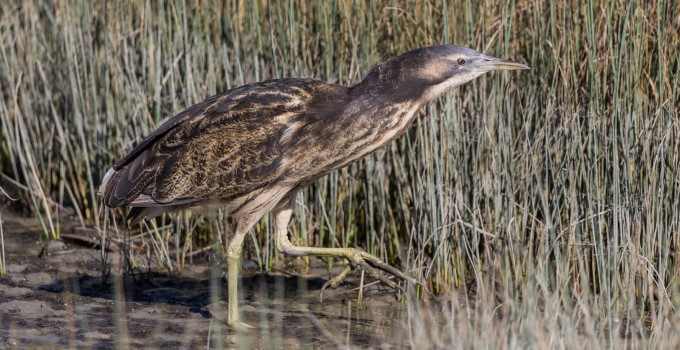
Australasian Bittern. Credit: By Imogen Warren – Own work, CC BY-SA 4.0, https://commons.wikimedia.org/w/index.php?curid=132850477
“The bittern is a nationally threatened species and there aren’t many records of them in Tasmania, but we know they were local to Lagoon of Islands before it was dammed,” said Raymond Brereton, Entura’s Team Leader of Environment and Planning.
“It’s exciting to see them return to the site, but particularly special to know they are breeding here again too.”
In addition to the return of the zooplankton and bittern, a plant that had previously formed a core part of the wetland’s reed mat, Baumea arthrophylla or ‘fine twig-sedge’, also began to recolonise the lagoon. With recovery efforts from Entura and Hydro Tasmania, the plant flourished, and in 2022 the wetland was declared self-sustaining and effectively rehabilitated.
The return of the bittern, zooplankton and copepods is testament to that, as is the rebound of several other plant and animal species, including Myriophyllum variifolium (variable water milfoil), Potamogeton cheesmanii (pondweed), Triglochin procera (water ribbons), Chorizandra enodis (black bristle sedge) and Ptunarra Brown butterflies (Oreixenica ptunarra).
“It was basically bare ground when we first started monitoring and now it’s almost 100% vegetation cover,” said Raymond. “We are fortunate to have observed its regeneration and are proud to have been part of facilitating that.”
Entura will continue to monitor the site to ensure its ongoing health.
Interim changes at Entura
Entura has announced changes within its management team, with long-standing Managing Director, Tammy Chu now appointed as Hydro Tasmania’s Interim Executive General Manager Construction and Dr Amanda Ashworth becoming Acting Managing Director for Entura.
Tammy’s new role will see her leading the project delivery of Hydro Tasmania’s Battery of the Nation program as it progresses through crucial planning and design phases. “I’m excited to take on this new challenge, and after 13 years as Managing Director at Entura, I know I’ll miss working alongside the amazing team of people that drives the success of the business. However, I’m not far away, and with the work involved with Battery of the Nation, I know I can rely on the Entura team to support and partner with us for success,” says Tammy.
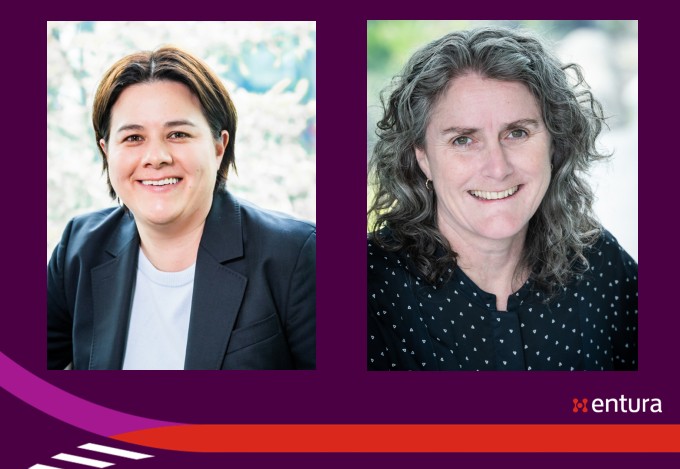
Tammy Chu (left) has been appointed Hydro Tasmania’s Interim Executive General Manager Construction, with Dr Amanda Ashworth (right) becoming Acting Managing Director for Entura.
Hydro Tasmania CEO, Ian Brooksbank said “this is a new role that recognises the critical importance of Battery of the Nation projects in our Purpose, Vision and Strategy with the next stage requiring even greater focus, strategic planning and coordination. Tammy is eminently qualified for the job.”
Amanda has been with the business for 23 years and over that time has held a number of roles across Entura and been involved in project direction of major engineering projects. For the past five years she’s been part of Entura’s Executive Team, most recently as Director of Strategy, Sales and Commercial. She is well known for creating and driving the Entura clean energy and water institute (ECEWI) since its launch in 2012, which has delivered training to Entura’s clients nationally and internationally. Through ECEWI and other connections, Amanda has maintained a significant international profile across the Indo-Pacific.
Of the appointment of Amanda, Ian commented “It’s fair to say that Amanda knows our business inside out and her contribution is significant across Entura’s strategic and operational frameworks and procedures.”
The interim and acting roles are currently planned to end in December 2024.

